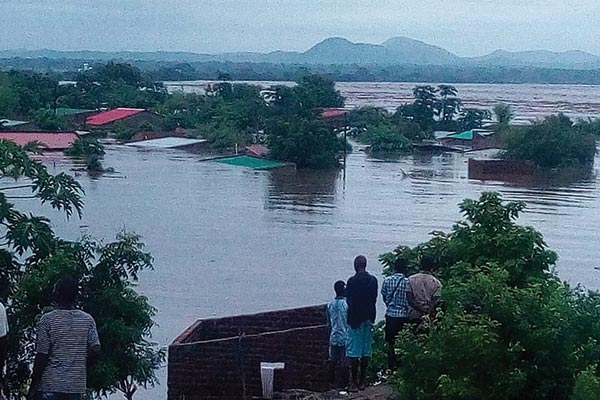

Editorial Comment
LAST week was all about the shocking situation at Zimbabwe’s public health institutions. The country held its breath as doctors told the health minister, Obadiah Moyo, of how the institutions set up to heal the nation have become death traps themselves as shortages of basic medication and equipment have turned them into agents of quick, horrible and painful deaths.
Head of Parirenyatwa Group of Hospital’s paediatrics department Azza Mashumba put the situation in perspective for Zimbabweans by weeping openly. Her frustration was evident in her emotive narration, laying bare her frustration and helplessness in the situation authorities have allowed to develop in the public health system. A nation’s future was being gambled away by a system that prioritised patronage over the health and survival of its people, and all that as Zimbabweans watched.
While Zimbabwe’s economic problems, their genesis and effects are well documented, the country has always maintained a functional and strong public health system and its focus on robust primary healthcare delivery ensured that whatever challenges it faced elsewhere, its population was robust enough to live to fight another day. But years of underinvestment in the sector has taken its toll on health institutions and the personnel charged with ensuring its vitality.
“I am here because I am desperate,” said Mashumba and Zimbabweans heard her. Around the country and world over, Zimbabweans started mobilising to raise funds, equipment and anything they could to help salvage the situation.
Then came Tropical Cyclone Idai late last week.
As of yesterday afternoon, 128 people had been reported dead, 217 were missing, over 200 injured and nearly two thousand homes destroyed in floods caused by the cyclone. The floods continue to cause massive destruction, with heavy rains ongoing in parts of Manicaland and Masvingo provinces. Chimanimani, the hardest-hit district, remains inaccessible as heavy rains have damaged roads and major access bridges have been washed away. In total, eight bridges have been destroyed in the district alone.
- Chamisa under fire over US$120K donation
- Mavhunga puts DeMbare into Chibuku quarterfinals
- Pension funds bet on Cabora Bassa oilfields
- Councils defy govt fire tender directive
Keep Reading
Other areas like Mutasa, Mutare, Chipinge, Buhera, Chikomba, Gutu and Bikita are also in need of help after being battered by the storms. It is fair to say that an accurate assessment of the scale of destruction and the number of people impacted, displaced and in need of assistance is difficult to establish at the moment as much of the affected areas are inaccessible.
Zimbabweans are rising to the occasion, with companies and individuals quickly getting involved in relief efforts. Alpha Media Holdings has joined other like-minded organisations such as CBZ Bank, Econet, NetOne, Webb, Low and Barry, Rotary Centre, EatOut Movement and some churches in the initiatives to raise and channel donations to those that are in critical need of help.
What is obvious is that the government on its own has no capacity to deal with all the crises that are affecting the country. Already struggling with a failing economy and a disaffected populace, the collapse of the health services and the disaster wrought by the Cyclone Idai-induced floods, Zimbabwe is facing a humanitarian crisis of Biblical proportions.
However, the government could start by capacitating the Department of Civil Protection (DCP), including allocating adequate resources. The $2,36 million for the 2019 financial year is woefully inadequate and, in fact, reflect government’s negative attitude towards its mandate. The poor funding makes it hard for the DCP to adequately prepare, react and act after the crisis.
With global warming, more extreme weather patterns will be experienced in the coming years and we hope government will not continue with its misplaced priorities. Zimbabweans are going to need each other more, so let’s support the cause now and in future.











